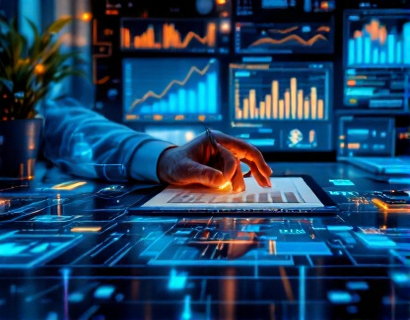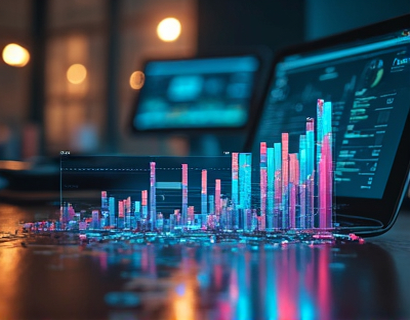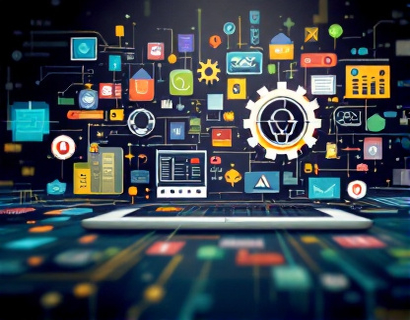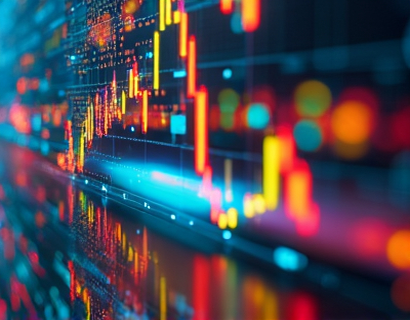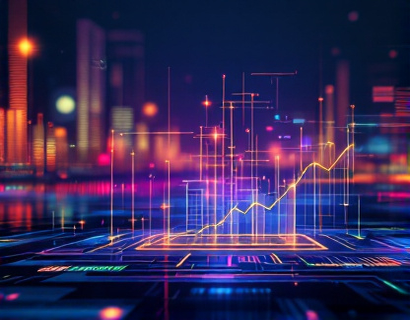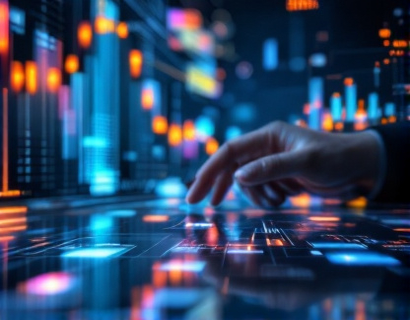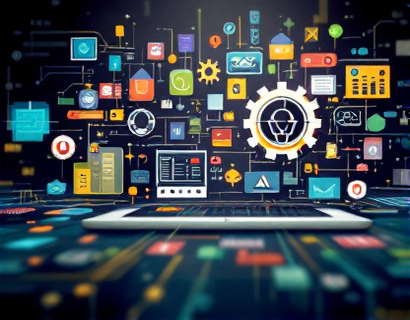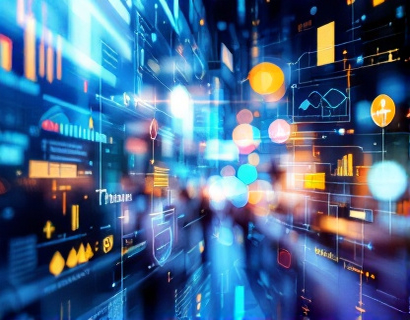AI and Crypto: Transforming Finance and Technology with Next-Gen Innovations
The intersection of artificial intelligence (AI) and cryptocurrency is ushering in a new era of financial and technological innovation. This fusion is not just a trend but a fundamental shift in how we perceive and interact with digital assets and services. The integration of AI into the crypto space is redefining traditional finance, creating more efficient, secure, and user-friendly solutions. This article delves into the transformative impact of this merger, exploring how it is setting new industry standards and enhancing user experiences.
The crypto landscape has evolved significantly since the inception of Bitcoin in 2009. Initially, cryptocurrencies were seen as a decentralized alternative to traditional fiat currencies. However, as the technology matured, the potential for more sophisticated applications became apparent. The introduction of smart contracts on blockchain platforms like Ethereum marked a significant milestone, enabling the creation of decentralized applications (dApps) that operate without intermediaries. AI, with its capabilities in data analysis, pattern recognition, and predictive modeling, is now being leveraged to take these applications to the next level.
Enhanced Security Through AI
One of the most critical aspects of cryptocurrency is security. Blockchain technology inherently provides a high level of security through its decentralized and immutable nature. However, the complexity of blockchain systems also introduces vulnerabilities that can be exploited by malicious actors. AI plays a pivotal role in enhancing security by detecting and mitigating threats in real-time. Machine learning algorithms can analyze vast amounts of data to identify unusual patterns or behaviors that may indicate a security breach. For instance, AI-driven systems can monitor transaction patterns and flag suspicious activities, such as unusual withdrawal amounts or frequent login attempts from unfamiliar locations. This proactive approach to security helps protect users' assets and maintains the integrity of the crypto ecosystem.
Moreover, AI can improve the security of private keys and wallet management. Traditional methods of storing private keys, such as hardware wallets, can be compromised through phishing attacks or physical theft. AI-powered solutions can enhance key management by using biometric authentication, behavioral analysis, and multi-factor authentication to ensure that only authorized users can access sensitive information. These advanced security measures not only protect individual users but also bolster the overall trust in cryptocurrency as a viable financial instrument.
Optimized Trading and Investment Strategies
The crypto market is known for its volatility and complexity, making it challenging for investors to make informed decisions. AI algorithms can analyze vast datasets, including historical price data, market trends, and news sentiment, to provide insights and predictions. These insights can be used to develop more effective trading and investment strategies. For example, AI-driven trading bots can execute trades based on predefined criteria, such as price movements or technical indicators, 24/7 without emotional bias. This automation not only increases the efficiency of trading but also allows investors to capitalize on opportunities that might be missed by human traders.
Additionally, AI can help in risk management by assessing the likelihood of market movements and suggesting appropriate hedging strategies. By continuously learning from new data, these algorithms can adapt to changing market conditions, providing investors with a competitive edge. This level of analysis and decision-making support is particularly valuable in the crypto market, where rapid changes can lead to significant gains or losses.
Personalized User Experiences
The integration of AI in the crypto space extends beyond security and trading to enhance the overall user experience. Personalization is a key area where AI can make a significant impact. By analyzing user behavior, preferences, and transaction history, AI systems can tailor recommendations and services to individual needs. For instance, a crypto exchange can use AI to suggest relevant assets for investment based on a user's past trades and market trends. This personalized approach not only improves user satisfaction but also increases engagement and loyalty.
Furthermore, AI-powered chatbots and virtual assistants can provide instant support and guidance to users. These AI-driven interfaces can answer common questions, guide users through complex processes, and offer real-time assistance, reducing the need for human intervention and improving the user experience. This level of accessibility is particularly beneficial for newcomers to the crypto space, who may find the technology overwhelming.
Decentralized Finance (DeFi) and AI
Decentralized Finance (DeFi) is a rapidly growing sector within the crypto ecosystem, offering a range of financial services such as lending, borrowing, and yield farming, all operated on blockchain networks. AI is playing a crucial role in enhancing the functionality and efficiency of DeFi platforms. For example, AI can optimize lending and borrowing algorithms by analyzing user creditworthiness, market conditions, and risk factors to determine the most favorable terms. This not only improves the user experience but also increases the liquidity and stability of DeFi protocols.
Another area where AI shines in DeFi is in the detection of fraudulent activities. Smart contracts, while secure, are only as good as the code they are written in. AI can help identify vulnerabilities in smart contract code and monitor transactions for signs of fraud or manipulation. By integrating AI into DeFi platforms, developers can create more robust and trustworthy financial systems.
Predictive Analytics and Market Insights
Predictive analytics powered by AI is revolutionizing how businesses and investors approach the crypto market. By leveraging machine learning algorithms, it is possible to forecast market trends, price movements, and even the success of new crypto projects. These predictions are based on a combination of historical data, real-time market data, and external factors such as economic indicators and news sentiment. Investors can use these insights to make more informed decisions, reducing the risk of costly mistakes and maximizing potential returns.
Moreover, AI can provide deep market insights that are not immediately apparent through traditional analysis. For instance, sentiment analysis of social media and news articles can gauge the overall mood of the market, helping to identify potential turning points. This level of predictive capability is invaluable in a market as dynamic and unpredictable as crypto.
Challenges and Considerations
While the integration of AI and crypto offers numerous benefits, it also presents several challenges that need to be addressed. One of the primary concerns is the regulatory landscape. As AI and crypto continue to evolve, regulators are grappling with how to oversee these innovative technologies. Ensuring compliance with existing laws while fostering innovation is a delicate balance. Developers and businesses must stay informed about regulatory changes and design AI solutions that adhere to legal requirements.
Another challenge is the ethical use of AI. The deployment of AI in finance and technology raises questions about privacy, bias, and transparency. For example, AI-driven decision-making systems must be designed to avoid discriminatory practices and ensure that user data is handled responsibly. Building trust in AI-powered crypto solutions requires a commitment to ethical standards and best practices.
Future Prospects
The future of AI and crypto is bright, with numerous opportunities for further innovation. As AI technology advances, we can expect even more sophisticated applications in the crypto space. For instance, the development of quantum computing could revolutionize how AI algorithms process and analyze data, leading to even more accurate predictions and insights. Additionally, the integration of AI with other emerging technologies, such as the Internet of Things (IoT) and 5G networks, could create new use cases and enhance the overall ecosystem.
In conclusion, the fusion of AI and crypto is transforming finance and technology, offering more secure, efficient, and personalized solutions. As the industry continues to evolve, the potential for innovation remains vast, paving the way for a more inclusive and advanced financial future.








